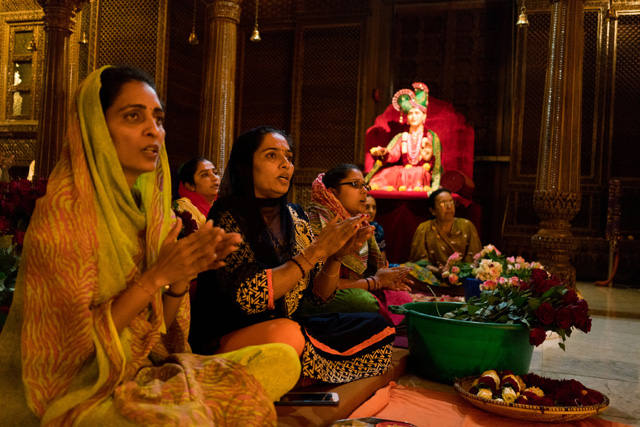
The national census classifies them as 'other', but they now seek official recognition to become Kenya's 44th ethnic group.
Shakeel Shabbir, Kenya's first member of Parliament of Asian descent is one of those supporting the movement. While they enjoy economic success, many are excluded from the country's political and social fabric, says Shabbir.
Pakistani workers 'regret' migrating to Greece
They lack representation in politics. There are only four Asian Kenyan lawmakers in the national Parliament and Kenya has never had an Asian government minister, he said. Shabbir's great grandfather came to Kenya from Punjab in 1917 to work on a British railway. It was called the 'Lunatic Line' because its construction cost the lives of thousands of labourers who died of malaria or were killed by lions. His grandfather fought against British colonialists and was even imprisoned.
 Shakeel Shabbir. PHOTO: New York Times
Shakeel Shabbir. PHOTO: New York Times"We've been here 100 years. It’s our right to be asking this, we need a home.” says Shabbir.
Kenya is home to 45 million people and 43 ethnicities. Being recognised as a tribe won't bring anything concrete to the Asians who already enjoy citizenship and have money, property and businesses.
What is lacking, however, Shabbir says is difficult to grasp: "That we share the dream and the toils of the Kenyan people." Being considered a tribe is "feeling part and parcel of the system," he adds.
Ethnic divisions in Kenya stem from colonial Britain's policy of divide and rule. Members of Kikuyu and Luo, the biggest ethnic groups in Kenya, worked as administrators and civil servants for the British. Today, they make up a large portion of Kenya's elite. While Kenya's constitution requires the government to include employees from different ethnic backgrounds, it is rarely followed.
Sudhir Vidyarthi, a publishing magnate whose ancestors printed newspapers opposing British rule said Asian Kenyans are so isolated from society their only proof of existence was “a one-acre plot of land that they’re living in with a sign on the gate saying: ‘Beware of the dog.’” He says this referring to the fact that Asians, known for their wealth, are frequently robbed.
While Asians consider themselves hard-working and entrepreneurial, some Kenyans consider them wealthy and standoffish.
Despite their resentment towards being disenfranchised, Asians have played their part in Kenyan politics.
No country for common folk
“Asians underwrite ruling parties so much, but they’re not at the table,” Vidyarthi said. “In the end, the man holding the whip owns the bull,” he said, quoting an Indian, not Kenyan, proverb, meaning Indians exercised a more subtle form of influence.
Those who are opposing Asian Kenyans getting official recognition say they can be influential in society without engaging in identity politics.
Rasna Warah, an author, said being Kenyan Asian means having three identities: born in Africa, being of Indian descent and with a British colonial legacy.
“Asians shouldn’t play the same tribal game,” says Warah. “Either you are a Kenyan or you are not. Where is my homeland? This is all I’ve got.”
This story originally appeared in New York Times.




1735040357-0/Untitled-(100)1735040357-0-165x106.webp)




1726732405-0/Express-Tribune-Web-(15)1726732405-0-270x192.webp)



1734946202-0/Express-Tribune-(6)1734946202-0-270x192.webp)
1734899716-0/image-(15)1734899716-0-270x192.webp)
1734954312-0/Express-Tribune-(8)1734954312-0-270x192.webp)
1732012115-0/Untitled-design-(14)1732012115-0-270x192.webp)






COMMENTS (1)
Comments are moderated and generally will be posted if they are on-topic and not abusive.
For more information, please see our Comments FAQ